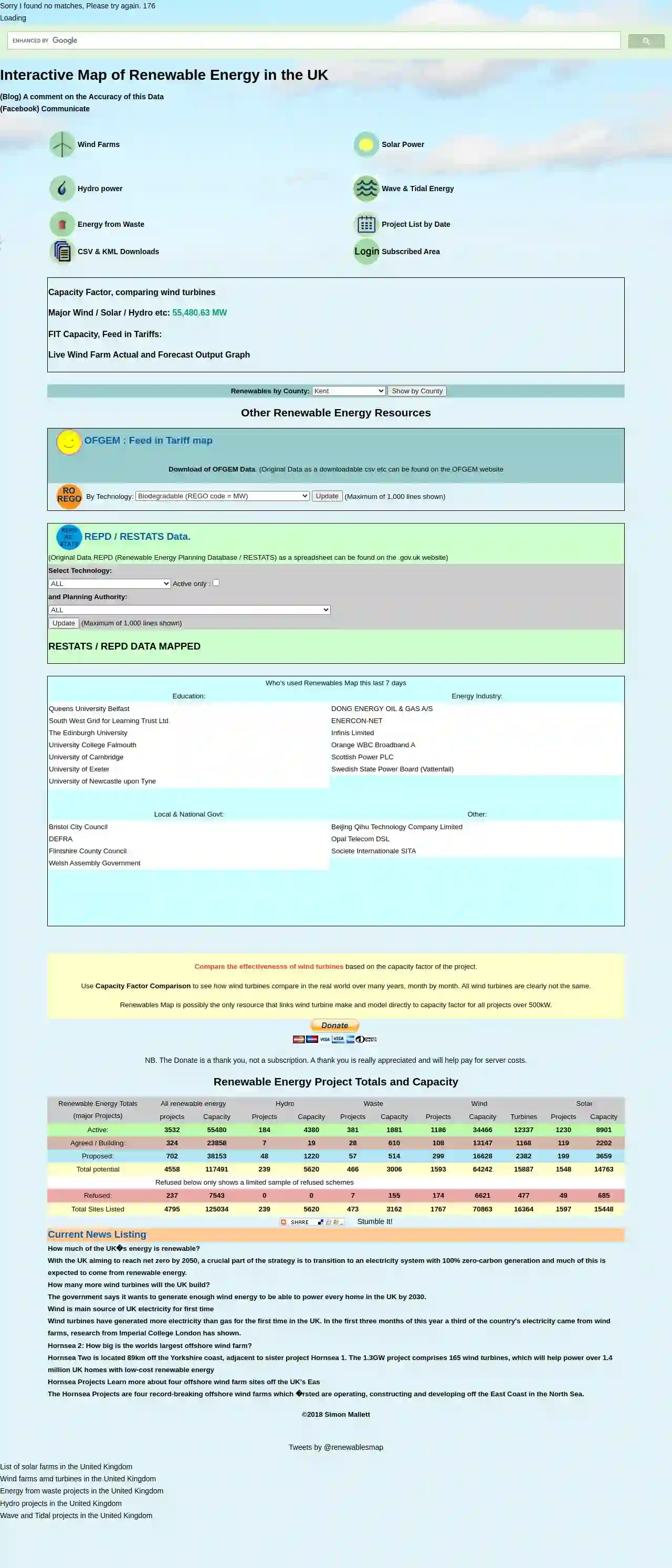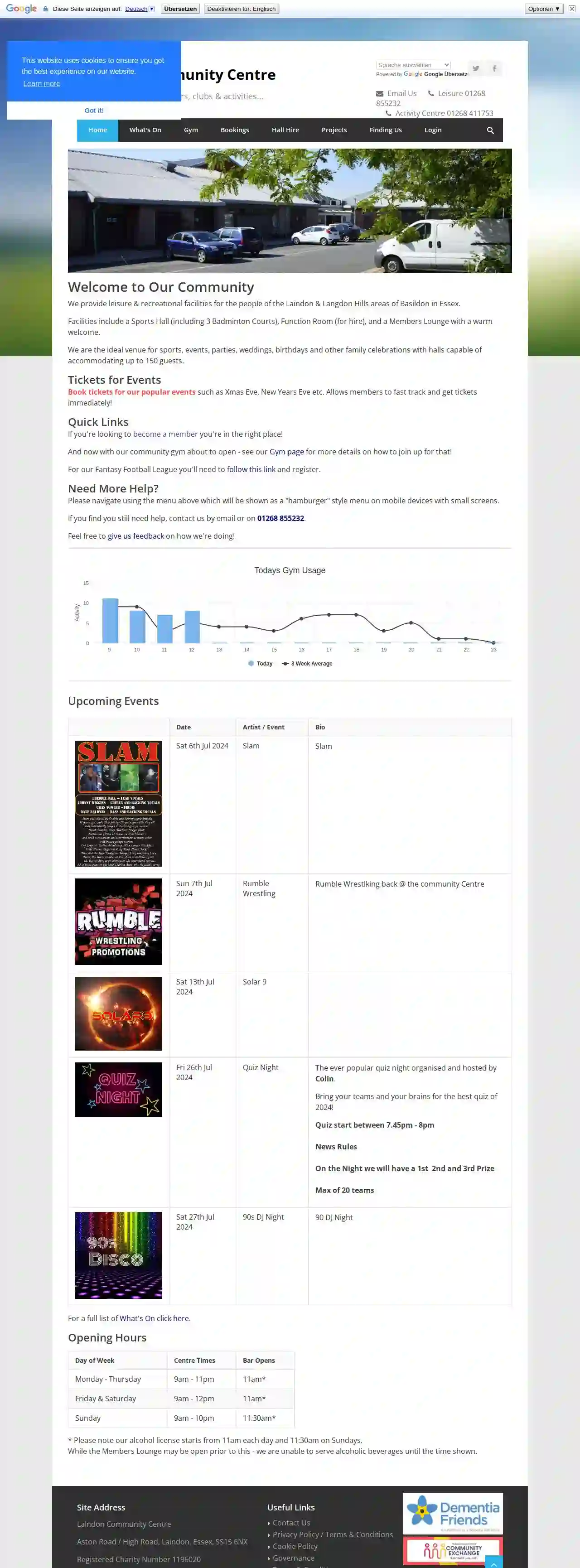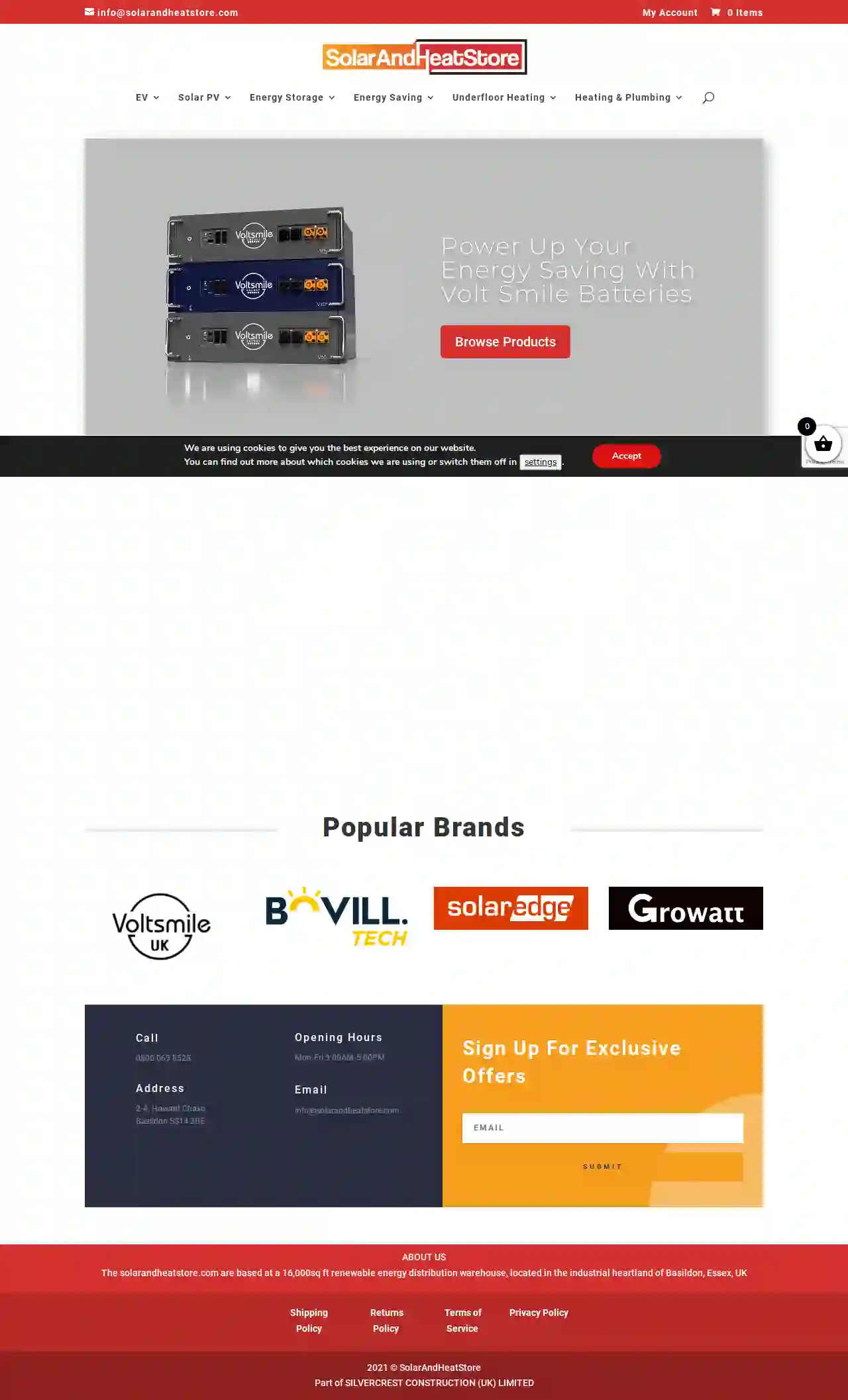Solar Installers Laindon
Find top Solar Panel Installers in Laindon
Get up to 3 Solar Panels For Homes quotes for your project today! Compare profiles, reviews, accreditations, portfolio, etc... and choose the best deal.

Renewables Map
52 reviewsLaindon, GBRenewables Map is an interactive map of renewable energy in the UK, providing information on wind farms, solar power, hydro power, wave and tidal energy, and energy from waste. The map allows users to view projects by date, download CSV and KML files, and access a subscribed area with additional features.
- Services
- Why Us?
- Gallery
Get Quote
Laindon Community Centre
4.2346 reviewsAston Road / High Road, Laindon Community Centre, Laindon, SS15 6NX, GBWe provide leisure & recreational facilities for the people of the Laindon & Langdon Hills areas of Basildon in Essex. Facilities include a Sports Hall (including 3 Badminton Courts), Function Room (for hire), and a Members Lounge with a warm welcome. We are the ideal venue for sports, events, parties, weddings, birthdays and other family celebrations with halls capable of accommodating up to 150 guests.
- Services
- Why Us?
- Gallery
Get Quote
The Renewable Energy Company
4.52 reviewsCreate Business Hub 5 Rayleigh Road, Hutton, Brentwood, CM13 1AB, GBThe Renewable Energy Company is a leading MCS Approved specialist in solar panels, battery storage, EV chargers, and more, based in Essex, UK. We pride ourselves on exceptional customer service and high-quality craftsmanship, providing a full life-cycle service for our customers, from initial consultation and site assessment to installation and commissioning. With years of experience and a deep understanding of the local climate and regulations, our team of experts will guide you through every step of the process, ensuring a smooth and hassle-free transition to solar power. We offer customized solutions tailored to your specific energy needs and budget, helping you achieve energy independence, reduce your carbon footprint, and lower your energy bills.
- Services
- Why Us?
- Accreditations
- Our Team
- Testimonials
- Gallery
Get Quote
Solar and Heat Store
48 reviews2-4, Howard Chase, Basildon, SS14 3BE, GBSolarandheatstore.com are based at a 16,000sq ft renewable energy distribution warehouse, located in the industrial heartland of Basildon, Essex, UK.
- Services
- Why Us?
- Gallery
Get Quote
Over 3,485+ Solar Installers on our platform
Our solar installers operate in Laindon & beyond!
SolarCompaniesHub has curated and vetted Top Solar Installers near Laindon. Find a trustworthy pro today.
Frequently Asked Questions About Solar Installers
- Analyze your energy bills
- Assess your roof's suitability
- Calculate your potential solar energy generation
- Recommend a system size that meets your needs and goals.
- Use a Directory Like SolarCompaniesHub: We connect you with pre-screened, qualified solar installers in your area.
- Check Online Reviews: Look for positive reviews on Google, Yelp, and other reputable sources.
- Ask for Referrals: Get recommendations from friends, family, or neighbors who have gone solar.
- Verify Credentials: Ensure the installer is licensed, insured, and certified by reputable organizations (e.g., NABCEP in the US).
- Get Multiple Quotes: Compare quotes from at least 3-4 installers to find the best value for your project.
- Ask Questions: Don't hesitate to ask installers about their experience, warranties, and the process they follow.
- Solar Panel Warranty: From the panel manufacturer, typically covering defects in materials and workmanship for 10-25 years. Some manufacturers offer performance guarantees, ensuring a certain level of energy output over time.
- Solar Installation Warranty: From the solar installer, covering the quality of the installation work for 1-10 years. This warranty protects you from leaks, faulty wiring, or other issues caused by improper installation.
- String Inverters: Connect multiple panels in a series (a 'string'). A cost-effective option for simple systems, but a single panel issue can affect the entire string.
- Microinverters: Attach to each individual solar panel, maximizing energy production even if some panels are shaded. They are more expensive but offer greater efficiency and monitoring capabilities.
- Power Optimizers: Similar to microinverters, but less expensive. They optimize the output of each panel and provide individual panel monitoring, but a central inverter is still required.
- Hybrid Inverters: Combine a solar inverter with a battery charge controller, allowing for seamless integration of battery storage.
How do I choose the right solar panel system size for my needs?
How do I find a good solar installer near me?
What kind of warranty should I expect for my solar panel system?
What are the different types of solar inverters?
How do I choose the right solar panel system size for my needs?
- Analyze your energy bills
- Assess your roof's suitability
- Calculate your potential solar energy generation
- Recommend a system size that meets your needs and goals.
How do I find a good solar installer near me?
- Use a Directory Like SolarCompaniesHub: We connect you with pre-screened, qualified solar installers in your area.
- Check Online Reviews: Look for positive reviews on Google, Yelp, and other reputable sources.
- Ask for Referrals: Get recommendations from friends, family, or neighbors who have gone solar.
- Verify Credentials: Ensure the installer is licensed, insured, and certified by reputable organizations (e.g., NABCEP in the US).
- Get Multiple Quotes: Compare quotes from at least 3-4 installers to find the best value for your project.
- Ask Questions: Don't hesitate to ask installers about their experience, warranties, and the process they follow.
What kind of warranty should I expect for my solar panel system?
- Solar Panel Warranty: From the panel manufacturer, typically covering defects in materials and workmanship for 10-25 years. Some manufacturers offer performance guarantees, ensuring a certain level of energy output over time.
- Solar Installation Warranty: From the solar installer, covering the quality of the installation work for 1-10 years. This warranty protects you from leaks, faulty wiring, or other issues caused by improper installation.
What are the different types of solar inverters?
- String Inverters: Connect multiple panels in a series (a 'string'). A cost-effective option for simple systems, but a single panel issue can affect the entire string.
- Microinverters: Attach to each individual solar panel, maximizing energy production even if some panels are shaded. They are more expensive but offer greater efficiency and monitoring capabilities.
- Power Optimizers: Similar to microinverters, but less expensive. They optimize the output of each panel and provide individual panel monitoring, but a central inverter is still required.
- Hybrid Inverters: Combine a solar inverter with a battery charge controller, allowing for seamless integration of battery storage.